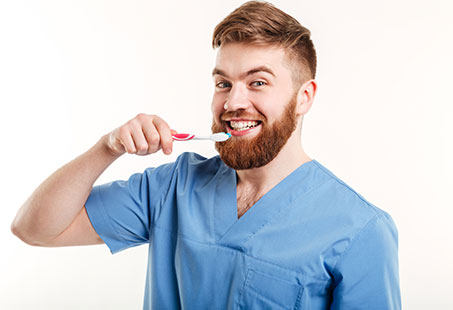Teeth brushing can be very tedious and boring. And that’s one reason why people just want to get it over with. But by doing that, you’re only going to put your oral health at risk.
Brushing alone isn’t enough. You need to know exactly how to brush your teeth. For that, you need to get the technique right, use the right toothbrush for the right amount of time, and do it daily without fail.
But trying to venture into the world of “brushing techniques” can be more than a bit tricky. According to a study published in the British Dental Journal, there’s an “unacceptably large diversity” in the proper toothbrushing techniques.
There’s a Bass technique, modified Bass technique, Scrub technique, Stillman technique, and Charters technique, to name a few. Here, we’ll just stick to the basics, so you can understand how to brush your teeth easily and effectively at the same time.
How To Brush Teeth Properly?
Follow these steps to brush your teeth properly:
- Wet your toothbrush and use a pea-sized amount of toothpaste.
- Place the brush at a 45-degree angle against the gumline.
- Gently move the brush back and forth in small circular motions.
- Brush the outside, chewing surfaces and insides of the teeth on your upper and lower jaw.
- Tilt the brush vertically and in up and down strokes, clean the inside of the top front and bottom teeth.
- Brush your tongue.
- Spit out the toothpaste.
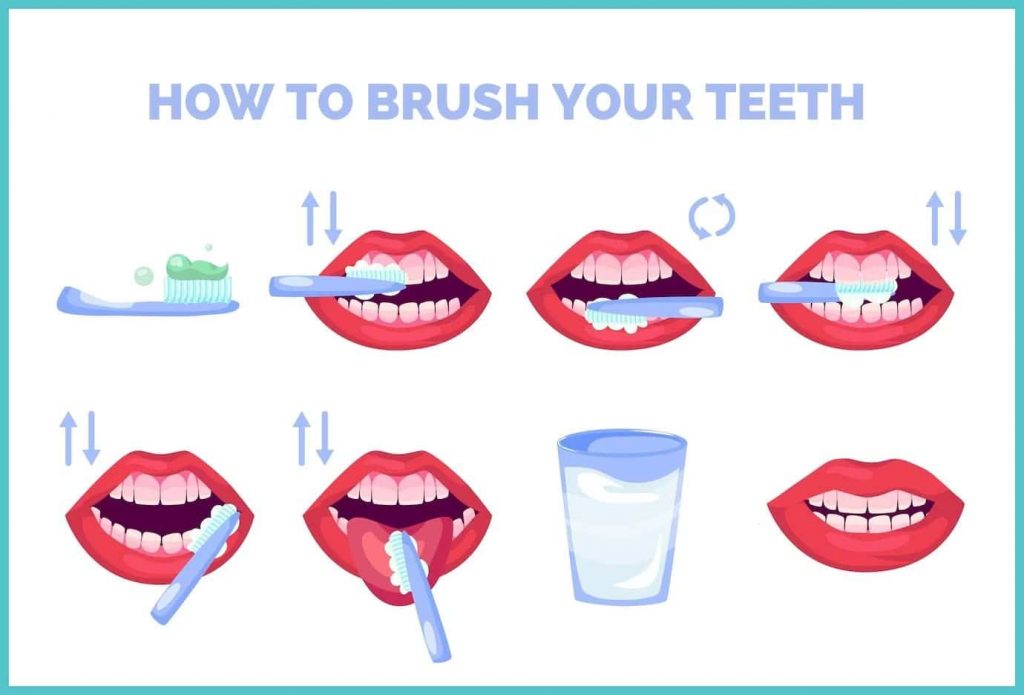
The technique’s as simple as that. However, there’s a lot that people do wrong.
For instance, many assume that the harder the brush, the better they’ll get all the bacteria in their mouth. This couldn’t be farther from the truth.
If you brush your teeth too hard, for one, it can cause gum recession. And that can end up causing gum disease. If that’s left untreated, it can affect your jawbone and other organs like the heart, brain, and lungs.
Moreover, there are a few things that you need to be mindful of to ensure proper cleaning of your teeth:
- Replace your toothbrush every 3-4 months (if it’s too frayed, do it sooner).
- Floss once a day to remove any particles and plaque between the teeth.
- Use fluoride toothpaste as it provides better protection for teeth.
- Visit your dentist every 6 months (or earlier if needed).
- Have a healthy and balanced diet (not a lot of sugar and acidic foods).
If brushing teeth causes gagging, try to think of something else to distract your mind. Brushing teeth gag reflex in some people is especially more sensitive so this may help.
If you have mobility issues or want to give your brushing routine a bit of an upgrade, you can also consider switching to an electric toothbrush. But even then, technique matters.
And for more unique situations, like getting braces or having a tooth extracted, follow your dentist’s instructions on the correct way to brush teeth.
When To Brush Teeth?
Timing is also quite important when it comes to getting the brushing routine right. So, let’s dig a little deeper into some of the more popular questions about it.
Should You Brush Your Teeth Before Or After Breakfast According To NHS?
According to NHS Inform, brushing after breakfast gets rid of “residual food and plaque,” and you’ll also feel “fresh and clean.”
Note that that’s what the NHS Inform says. It’s only Scotland’s national health information service.
The NHS UK doesn’t give a clear answer to this. According to them, brushing should be the last thing you do before going to bed and “on 1 other occasion every day.” Now, that “occasion” could be before or after breakfast.

Still, in general, it’s also argued that you should brush before having your breakfast. Those in favour say that breakfast itself can feed the bacteria in the mouth, allowing it to flourish even more. So, it’s better to brush your teeth before that. It also increases saliva production.
And lastly, brushing before breakfast is just getting one more (tedious) chore out of the way before the hustle of the day starts. If you don’t brush then, you might end up brushing your teeth a little too late.
How Long After Eating Should You Brush Your Teeth?
Typically, it’s recommended that you wait for 30 minutes before brushing your teeth after a meal (or even vomit). However, the American Dental Association (ADA) recommends waiting an hour after you’ve had anything acidic.
That way, your saliva will have enough time to wash the acids out of the mouth and repair your enamel. But if you go in too early, your teeth will be in a weaker state, and brushing them would do more harm than good. So, the best time to brush your teeth after eating is after about half an hour.
What Happens If You Don’t Brush Your Teeth?
You will face a whole host of problems if you don’t brush your teeth. And it will begin with the accumulation of plaque. It takes about 2-3 days for the plaque to harden into tartar. And tartar isn’t something that you can get rid of at home.
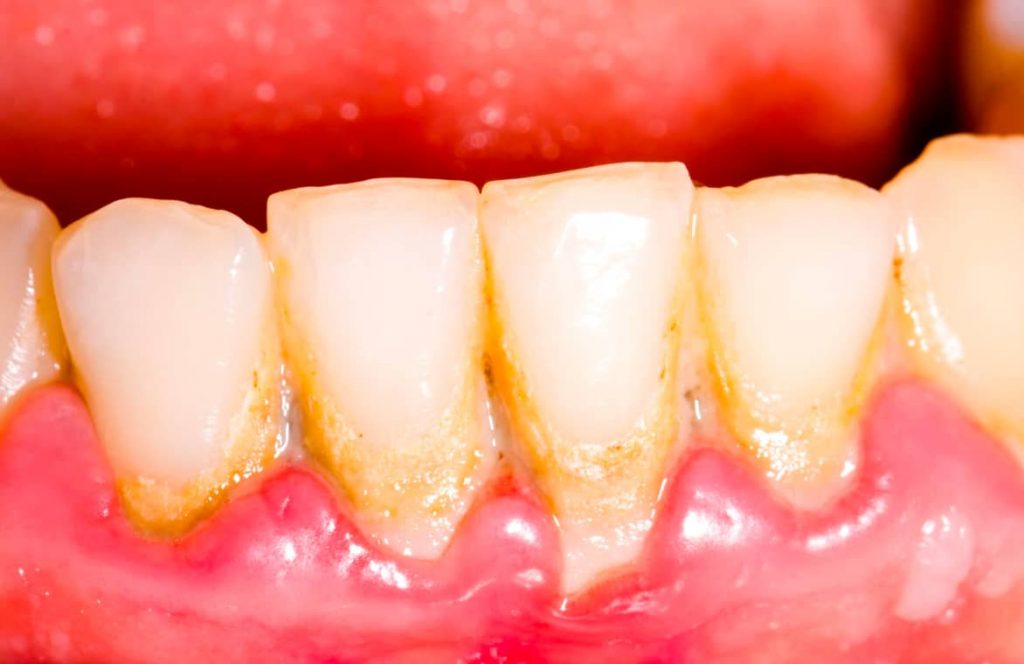
With that tartar in place, the bacteria will release acids that will damage your teeth and gums. It can begin with gingivitis and progress to periodontitis, which can damage the periodontal ligament, cementum, jawbone, and teeth irreversibly.
The bacteria can even spread to other parts of the body. Gum disease has been associated with very serious conditions like stroke, Alzheimer’s, cancer and pneumonia. Therefore, it’s extremely important that you’ve brushed your teeth.
How Often Should You Brush Your Teeth?
According to the NHS, CDC and American Dental Association, among other dental associations, you should brush your teeth 2 times a day.
Still, there are many people who only brush their teeth once a day. One survey of 2,000 Brits found that 1 in 5 of them only brush their teeth once a day.
More surprisingly, it also found that 22% of the participants had even gone without brushing their teeth for 3 days!
On the other hand, over-brushed teeth are also not good. Excess of anything is bad, and if you’re over-brushing your teeth, it can cause sensitivity, gum recession, and dental abrasion.
How Long Should You Brush Your Teeth?
According to the NHS and the American Dental Association, you should brush your teeth for 2 minutes. In general, it is suggested that you divide the time into four quadrants of 30 seconds each, one for each side of the upper and lower jaws.
Unfortunately, however, not many people make it 2 minutes. A study published in The Journal of Dental Hygiene found that usually, people brush for about 45 seconds. And that is, of course, not enough.
To make sure you’re putting in the required time, many people advise playing a song for 2 minutes so you can follow along.
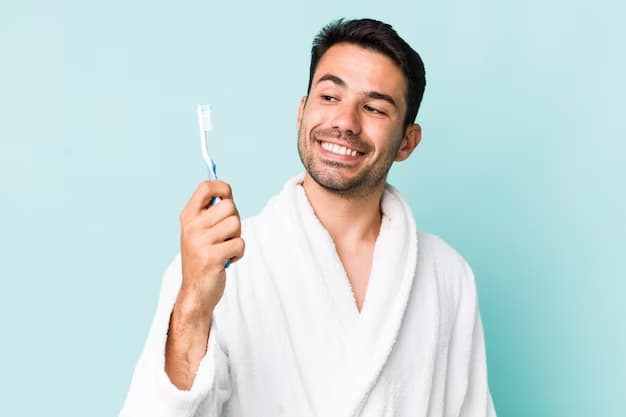
You can also put a timer on your phone (but that can be a bit boring). Although if you’re using an electronic toothbrush, it might be easier since those come with built-in timers.
How Long After Brushing Teeth Can I Eat?
In general, it’s said that you don’t really have to wait before starting to eat after brushing teeth. It’s brushing right after that’s more problematic.
But if you’ve just brushed your teeth, it would be a good idea to not gulp orange juice right after because it can taste quite unpleasant.
Should You Rinse After Brushing Teeth?
There’s no final consensus on this either.
According to the NHS, you shouldn’t rinse your mouth (with water or mouthwash) right after brushing. That’s because you should let the fluoride in the toothpaste do some good to your teeth.
Instead, you should just spit out the saliva, toothpaste, and water that’s already in your mouth. The Australian Dental Association also recommends against a water rinse.
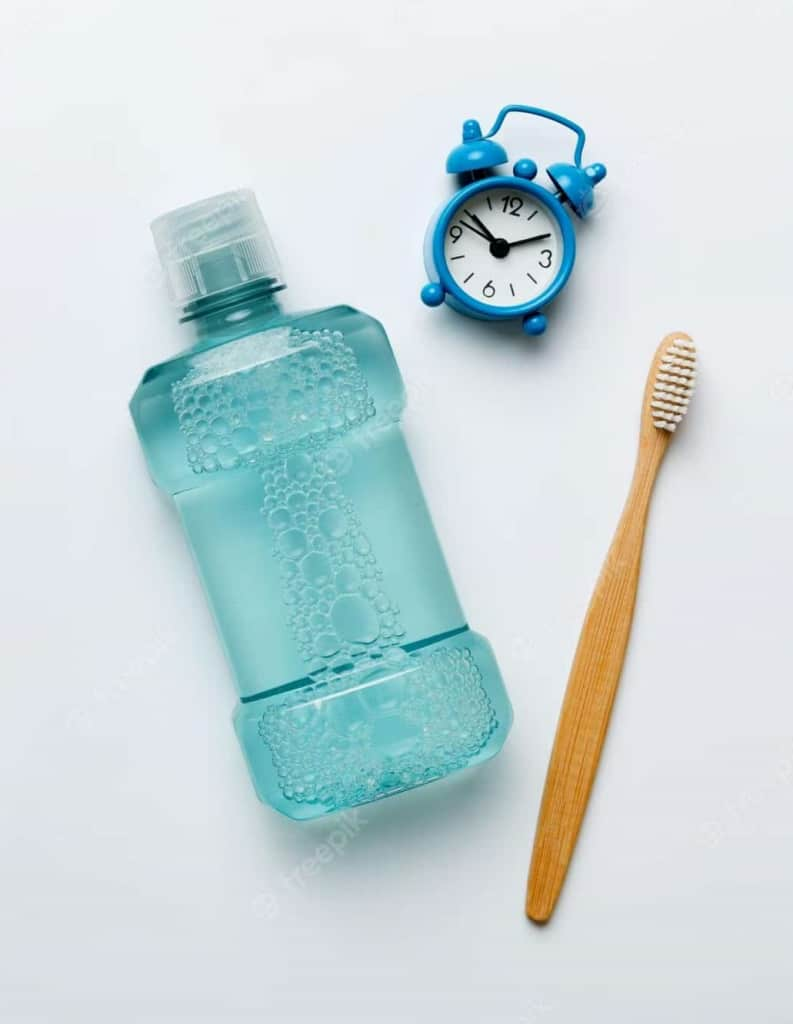
But the American Dental Association says that if your toothpaste contains ingredients like calcium hydroxide or aluminum hydroxide, it can make a mouthwash less effective. So, in that case, you should do a “vigorous” water rinse after tooth brushing and before using a rinse.
Conclusion
Brushing your teeth right doesn’t just mean getting the right toothbrush. You have to make sure that the technique is right so you get all the nooks and crannies.
Even then, that’s not where your oral hygiene routine should end. It’s important to floss as well. And you should use mouthwash (not right after brushing) to keep your mouth clean.
That’s because if you don’t keep your teeth clean, it can cause a lot of oral health problems that can be very expensive to deal with. So, prevention is always better than cure.
And if you have any oral-health-related issues or questions, make sure to get in touch with an experienced and qualified dentist.
Reviewed and approved by Dr Izbel Aksit
FAQ
Is brushing your teeth 3 times a day bad?
A few recommend brushing teeth 3 times a day instead of 2. It might not hurt your teeth, but doing it twice should be enough.
Should I brush my teeth after every meal?
It can be a bit unfeasible, which is why brushing your teeth twice a day should be okay.
Are you supposed to rinse after brushing your teeth?
The NHS advises against rinsing after brushing since it can wash away the teeth-protecting fluoride.
Is it harmful to brush your teeth with baking soda?
Occasional use of baking soda might not harm your teeth, but it’s not a substitute for toothpaste since it doesn’t contain fluoride.
How many times a day should you brush your teeth?
It’s recommended that you brush your teeth at least twice a day – once in the morning and once at night before bed.
